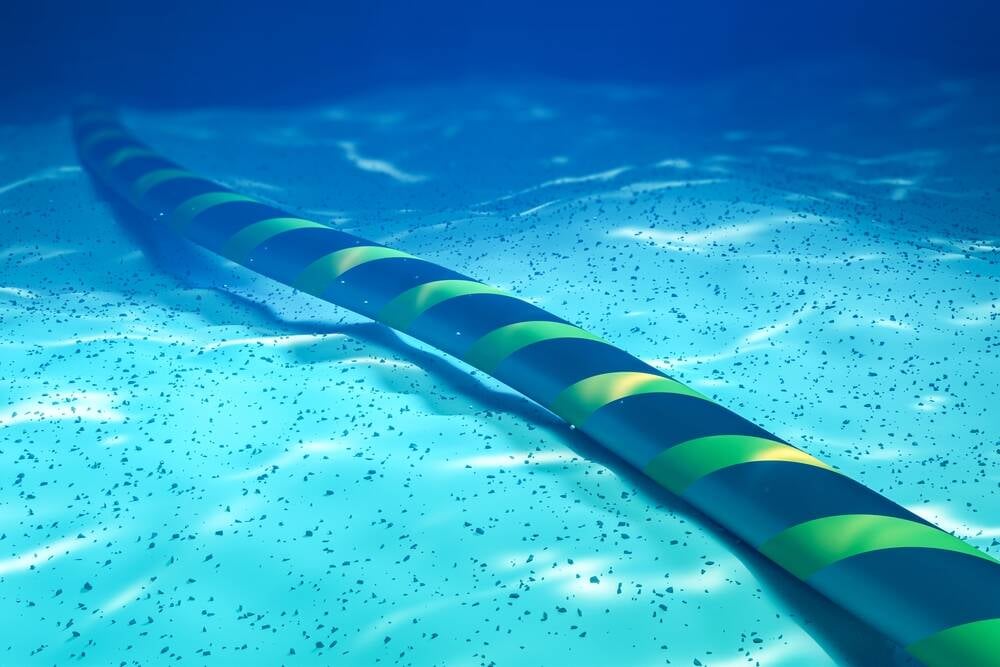Europe Glances Russia's Way After Baltic Sea Data Cables Severed

Updated Two optical fiber internet cables under the Baltic Sea appear to have been deliberately broken, Germany and Finland confirmed, prompting fresh concerns over possible Russian interference with technology infrastructure.
In a joint statement, the Finnish and German foreign ministers said they were "deeply concerned" about the severed cable beneath the Baltic Sea connecting the two nations.
"The fact that such an incident immediately raises suspicions of intentional damage speaks volumes about the volatility of our times," the statement said. "A thorough investigation is underway. Our European security is not only under threat from Russia's war of aggression against Ukraine, but also from hybrid warfare by malicious actors. Safeguarding our shared critical infrastructure is vital to our security and the resilience of our societies."
Multiple reports confirm the C-Lion1 cable between the Finnish capital of Helsinki and Rostock on Germany's Baltic coast started to malfunction at about 04:00 UTC on Monday.
Finnish network operator Cinia told local media all fiber connections in the cable had been trashed and that it was unlikely to malfunction without outside interference. Data that would have flowed along the line has been rerouted to maintain connectivity, we're told.
In a statement, the operator said the details of the fault are not yet known and are being investigated. "Corrective measures have been initiated and the repair vessel is getting ready to go on the site. The exact repair time is not yet known, but typically the repair time for submarine cables is between five and 15 days."
- Hyperscalers are carving up the ocean floor into private internet highways
- Google plunks down $1 billion for extra Japan-US submarine cable
- Underwater cables in Red Sea damaged months after Houthis 'threatened' to do just that
- EU wants to make undersea internet cables more resilient
The cable was broken in the Baltic Sea, in the Swedish Exclusive Economic Zone, east of the southern tip of Öland, about 700 km from Helsinki.
"Finland's international telecommunication connections are routed via multiple routes and the impact of a single cable failure depends on the resilience of the service providers' connections," the operator said.
C-Lion1 was launched in 2016 and runs 1,173 km between Finland and Germany connecting central European telecommunications networks to Finland and other Nordic countries.
Separately, a 218 km internet link between Lithuania and Sweden's Gotland Island also lost service on Sunday morning.
"The cable was cut on Sunday morning, at around 1000," Vilnius-based telco Telia Lietuva told media on Monday. "The systems immediately reported that we had lost the connection. Further investigation and clarification took place, and it turned out that it was damaged." ®
Updated at 2000 UTC
It's emerging that officials are looking into whether the Chinese-registered bulk carrier Yi Peng 3, which set sail from Russia to Egypt, damaged the two cables. It's said the ship came near the Swedish-Lithuanian and Finnish-German undersea lines around the time each was seemingly cut on Sunday and Monday.
From Chip War To Cloud War: The Next Frontier In Global Tech Competition
The global chip war, characterized by intense competition among nations and corporations for supremacy in semiconductor ... Read more
The High Stakes Of Tech Regulation: Security Risks And Market Dynamics
The influence of tech giants in the global economy continues to grow, raising crucial questions about how to balance sec... Read more
The Tyranny Of Instagram Interiors: Why It's Time To Break Free From Algorithm-Driven Aesthetics
Instagram has become a dominant force in shaping interior design trends, offering a seemingly endless stream of inspirat... Read more
The Data Crunch In AI: Strategies For Sustainability
Exploring solutions to the imminent exhaustion of internet data for AI training.As the artificial intelligence (AI) indu... Read more
Google Abandons Four-Year Effort To Remove Cookies From Chrome Browser
After four years of dedicated effort, Google has decided to abandon its plan to remove third-party cookies from its Chro... Read more
LinkedIn Embraces AI And Gamification To Drive User Engagement And Revenue
In an effort to tackle slowing revenue growth and enhance user engagement, LinkedIn is turning to artificial intelligenc... Read more

